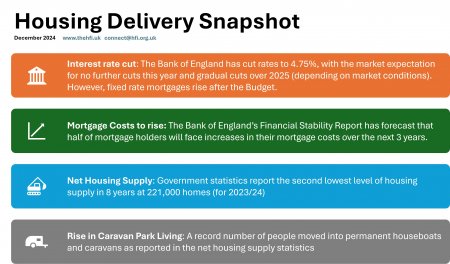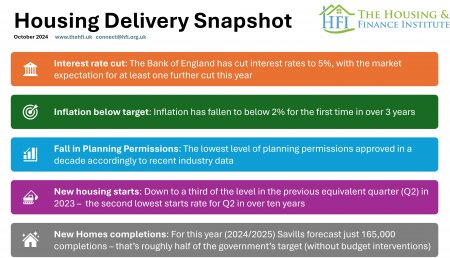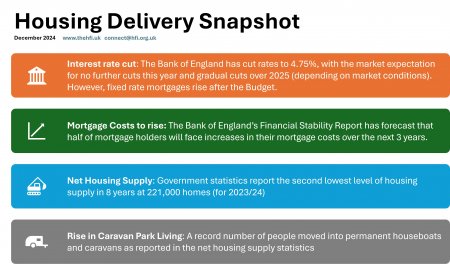

20 OCT 2017
HFi Today, The Housing Problem In London
- The Housing Problem in London: A Broken Planning System
- Invitation to the Launch of the HFi's New Report - 31 October
- Autumn Budget Special - 29 November
- Worth a Read - The Smith Institute's Latest Report
The Housing Problem in London: A Broken Planning System
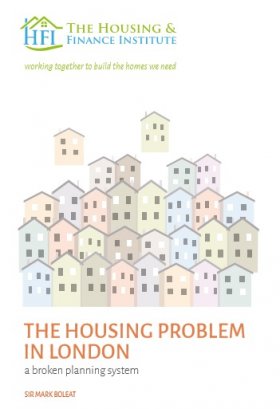
The HFi's latest report was launched on Wednesday, entitled 'The Housing Problem in London: A Broken Planning System'. It received a significant amount of press coverage, with a double page spread in the Evening Standard, as well as a strongly positive write up in the Evening Standard's Leader Column.
It calls for a radical planning shake-up to solve London's housing crisis that would professionalise decision-making in the planning system, increase the supply of land suitable for house building and allow substantially greater densities of homes in the capital.
The paper sets out a ten-point plan to get London building again. There needs to be:
- An evidence-based debate and recognition that there are trade-offs.
- Recognition that the problem will not be solved by building on brownfield land alone.
- Recognition that the higher the tax on house building through planning obligations the fewer houses will be built. 30 per cent of a large number can be much higher than 50 per cent of a small number.
- A change of policy towards land use, including the Green Belt, and permitting higher densities.
- Strong penalties on public sector bodies that fail to release surplus land.
- Planning conditions to be reduced significantly, costed and deemed to be discharged within seven days of certification by the developer, unless the local authority has clear evidence that the conditions have not been complied with.
- Ensuring that planning decisions in local authorities are joined-up with wider policy objectives.
- Planning decisions should be taken by relatively small panels, who have received appropriate training, and representatives of an area in which a development would take place should be excluded from voting on that decision.
- Simplification of the Community Infrastructure Levy and S.106 requirements particularly for social housing.
- Political leadership in individual local authorities, without which the problem will never be solved and which is a pre-requisite for addressing the other issues.
Click here to download the report.
Invitation to the Launch of the HFi's New Report

We are delighted to invite you to a breakfast seminar which will launch a paper by Sir Mark Boleat, former political leader at the City of London Corporation and Chairman of The Housing & Finance Institute.
'The Housing Problem in London: A Broken Planning System' sets out a range of proposals to radically increase the delivery of new housing in capital, as set out above.
We are pleased to launch this thought leadership piece in partnership with CPA and WPA. Following Sir Mark Boleat's introduction to the research, a panel of industry experts will discuss his ideas.
This seminar is kindly hosted by Savills. We are expecting a lot of interest in this event, so please RSVP promptly to guarantee a place by emailing events@cwpa.org.uk with the subject title 'RSVP: Housing White Paper | Oct 31'.
DATE: Tuesday 31 October 2017
TIME: 8:00am to 10:00am (seminar runs from 8:30am to 9:30am)
VENUE: Savills, 33 Margaret St, London, W1G 0JD

Autumn Budget Special - 29th November

Don't forget, our next breakfast will be held on the 29th November between 8.30-10.00am at Bevan Brittan, which is located at Fleet Place House, 2 Fleet Place, London EC4M 7RF.
As the budget takes place on the 22nd November. This breakfast will be an autumn budget special looking at the impact of the budget on housing markets.
To register your interest email: events@thehfi.com
Worth a Read - The Smith Institute's Latest Report
The Smith Institute has written a new report - 'Delivering the renaissance in council-built homes: the rise of local housing companies'.
The report describes a 'quiet revolution' in council housebuilding. And it is predicted that local housing companies could deliver up to 15,000 extra homes per year by 2022, compared with just 2,000 new council homes in 2016.
It reveals that the number of local housing companies that are directly funded by councils has now reached around 150 and could top 200 by 2020. And that soon over half the councils in England may have a housing company, including many district councils.
Many of the companies they studied use the profits to cross-subsidise new affordable and social rented homes as well as providing temporary accommodation and housing for the young and elderly.
Click here to read the report.
If you have read any interesting reports recently, feel free to email them to us at connect@thehfi.com
March 2025 Housing Delivery Snapshot
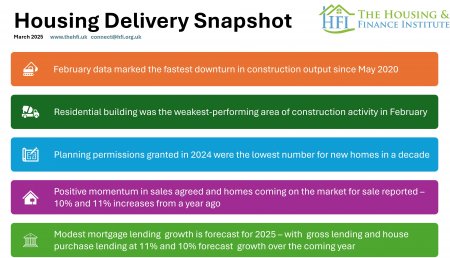
January 2025 Housing Delivery Snapshot

December 2024
